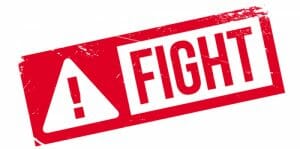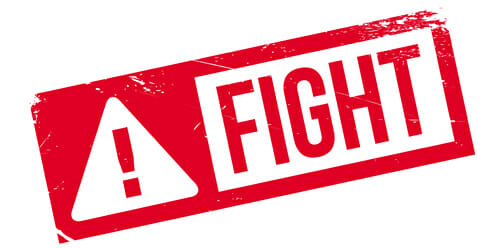 {Read in 8 minutes} The favorite part of my job? Being a Trusts & Estates litigator. Being a litigator is not something that many Trusts & Estates attorneys get to do. Many prefer to work directly with clients on planning, but do not consider themselves litigators who go to Court and actively argue for or against the validity of the documents that they’ve written. I, on the other hand, love being in Court, and if I am in Court at least a couple of days every week, it makes me a very happy attorney.
{Read in 8 minutes} The favorite part of my job? Being a Trusts & Estates litigator. Being a litigator is not something that many Trusts & Estates attorneys get to do. Many prefer to work directly with clients on planning, but do not consider themselves litigators who go to Court and actively argue for or against the validity of the documents that they’ve written. I, on the other hand, love being in Court, and if I am in Court at least a couple of days every week, it makes me a very happy attorney.
I’d like to talk a bit about Will contests that come up in the context of a probate proceeding. I’ve blogged about this before when I talked about the role of probate juries. In this article, I thought I would talk in a little more detail about what happens.
A probate proceeding starts when the Executor files a Petition to probate the Will in the Surrogate’s Court. The Executor is the Petitioner and is asking the Court to make a finding that the Will is valid. In order to do this, the Executor needs to give formal notice called a Citation to the family members — those who would inherit if the decedent died without a Will. A Will contest potentially arises when one of those family members doubts the validity of the Will.
The first thing that an objecting party has the right to do is take the deposition of the attorney who wrote the Will, (if any), and the two people who served as witnesses to the Will.
1404 Examination
“1404 examinations” are something that estate litigators handle all the time, however, they are not terribly common — not every Will is under suspicion or challenged. In a 1404 examination, the family members (or their attorney) would get to ask the attorney who wrote the Will about his/her meeting with the deceased:
– How did the attorney determine that the deceased had capacity?
– How did the attorney determine that the deceased knew (1) the extent of their assets and (2) their family members?
– How does the attorney know that the signature on the Will is actually that of the deceased and not a forgery? Did the attorney personally observe it? Did the attorney personally observe the other witnesses signing the Will?
If one of the reasons that the family is concerned about the validity of the Will is that the deceased has disinherited the family, the attorney/draftsperson may offer some input into why the deceased decided to do this.
The 1404 examinations will also include witnesses to the Will. There are some witnesses that remember a Will execution ceremony with particular recollection. These witnesses are usually friends of the deceased as opposed to “professional witnesses,” such as a staff member who was working in an attorney’s office who witnesses dozens of Wills a month, and cannot remember any of them with any particularity. However, the family members have the right to take those examinations and ask some questions.
Objections
After the 1404 examinations, the family members generally have 10 days to file Objections. What would Objections to probate look like? Well, there’s a variety of grounds on which someone could challenge a Will:
– lack of capacity;
– forgery;
– the deceased failed to properly sign the Will; or
– whether any party unduly influenced the deceased into including or excluding any party from the Will.
Discovery
Once a party has filed formal Objections to Probate, the parties are then free to engage in discovery, which means that they are allowed to get anything that is potentially relevant to the case and may be of use at the eventual trial, including:-
– correspondence between the deceased, and others, including the attorney who drafted the Will, beneficiaries, and family members;
–copies of bank or brokerage statements showing transactions, gifts, or a pattern of gifts to a class of beneficiaries; and
– the examinations of other parties.
As I mentioned above, the 1404 examinations are a fantastic look into what happened at the drafting attorney’s office. You don’t get the opportunity to take the deposition of the parties who are objecting to the Will or the Executor (except in limited circumstances) prior to filing Objections. However, once a party files Objection, all potential parties and fact witnesses are subject to examination.
Settlements or Motion Practice and Trial
At this point, it’s not uncommon for the parties to a Will contest to settle. Why? Because, they’ve had the benefit of discovery — taking the depositions of the interested parties under oath, reviewing all of the documents, etc. Each side probably has an idea of how well or how poorly they would do at an eventual trial in this matter.
I also mentioned that a settlement of Will contests is incredibly common. There’s an old saying (which is pretty much pure colloquy and not based on any actual numbers) that less than 5% of Will contests are ever successful. That’s not because only 5% of them have merit; it means that those that do have merit often settle with the Will provisions being revised to include some request for the objecting party. After discovery is a very good juncture to settle.
If the parties are unable to settle — that’s why we have Courts to resolve disputes. It’s not uncommon for the parties to move for something called Summary Judgment. Summary Judgments involve asking the Courts to decide the issues of fact and law without a trial. The Court can do this in some circumstances, but not in others.
If the Court is unable to resolve this by motion, the Court will then set the matter for a trial.
Again, Will contests are not particularly common and don’t happen every day in every Estate, however, it is something that people are concerned about. If you or someone you know is an Executor offering a Will to probate or would like information on challenging a Will, please contact me.

